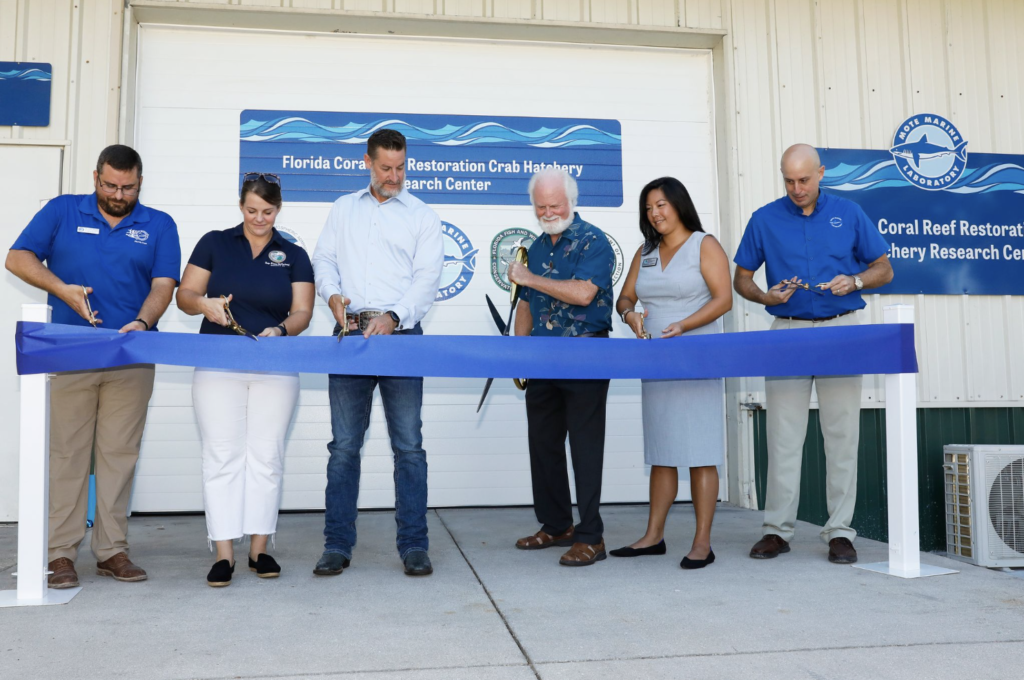
News & Views
Hatchery Operations
Crab hatchery opens up in Florida for coral reef restoration
September 20, 2023 By Hatchery International staff
 Mote Marine Laboratory & Aquarium has opened its Florida Coral Reef Restoration Crab Hatchery Research Center. (Photo: Mote Marine Laboratory & Aquarium)
Mote Marine Laboratory & Aquarium has opened its Florida Coral Reef Restoration Crab Hatchery Research Center. (Photo: Mote Marine Laboratory & Aquarium) Mote Marine Laboratory & Aquarium has opened its Florida Coral Reef Restoration Crab Hatchery Research Center. It is said to be the first fully operational Caribbean king crab hatchery of its kind and will aid in saving Florida’s Coral Reefs.
U.S. Representative Greg Steube who was present at the official opening said Florida’s Coral Reef is an environmental and economic asset for both the state of Florida and the United States.
“I’m pleased to support the Coral Reef Restoration Crab Hatchery Research Center as a critical component of the restoration toolbox going forward. I am confident that this effort, alongside the numerous other pioneering innovations from Mote, will aid in reversing the significant functional decline we’ve witnessed on the reef in recent decades,” said Steube.
The new facility was funded partly by an award from the National Marine Sanctuary Foundation as part of the Mission: Iconic Reefs (M:IR) Capacity Building Grant program.
“Thanks to the support of our elected officials, the National Marine Sanctuary Foundation, and NOAA’s Mission: Iconic Reefs, we will be able to produce 34,000 Caribbean King crabs in this new facility within the next four years as we grow our holistic coral reef community restoration approach under the leadership of Mote’s Coral Reef Restoration Research Program Manager, Dr. Jason Spadaro,” said Mote president and CEO Michael Crosby.
Caribbean king crabs are said to eat up more algae than any species of parrotfish in the Caribbean and feed on urchins.
Their ability to reduce the threat of algae overgrowth was concealed by their low natural abundance in the region. “Caribbean king crabs have emerged as champions in the fight to rescue threatened coral reefs,” information from Mote’s website states. “By increasing their abundance, they facilitate the growth, survival, and recruitment of corals, dramatically improving coral reef restoration outcomes.”
The 6,000-square-foot hatchery facility is home to over 100 Caribbean king crabs that will serve as the initial broodstock at Mote’s Aquaculture Research Park in Sarasota, Florida.
They aim to increase this to 300 to 400 adult broodstock and in the end produce about 250,000 juvenile crabs yearly. Once the baby crabs are big enough to be released, they will be screened and released onto restoration sites along Florida’s Coral Reef.
Print this page





